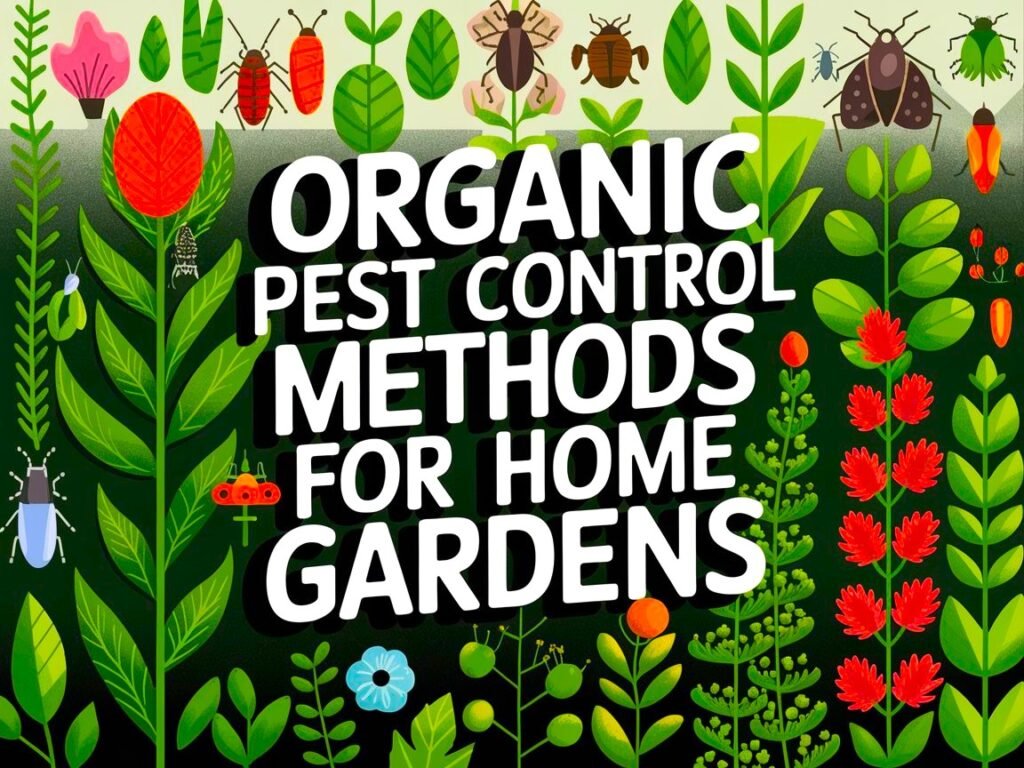Introduction
Home gardening is more than simply a pastime. But it’s also a way to connect with nature, grow food, and promote a healthier lifestyle. But what if you grieve over aphids or are helpless while chameleons devour your precious plants? You will know how challenging Prague can be. Organic pest Control in Prague offers a sustainable and environmentally friendly solution to this age-old problem.
Understanding Organic Pest Control
Organic pest control means using natural methods and materials to manage and prevent the spread of garden pests. Different from chemical pesticides These techniques focus on working with nature to maintain a healthy balance in the ecosystem.
What are the benefits? Prague’s organic controls are safe for the environment, family, and beneficial organisms like bees and butterflies. It also maintains only health. Ensure the success of your garden every year.
Common Garden Pests
Insects
- Aphids: These tiny, soft-bodied insects suck the sap from plants, causing wilting and stunted growth.
- Caterpillars: While they might turn into beautiful butterflies, their larvae can quickly munch through your leaves.
- Whiteflies: These small, white insects are notorious for spreading plant diseases.
Fungal Issues
- Powdery Mildew: A common fungal problem that creates a white, powdery coating on leaves.
- Rust: These reddish-brown spots weaken plants and hinder photosynthesis.
Larger Pests
- Birds: They love to snack on fruits and seeds.
- Rodents: Mice and rats can damage roots, bulbs, and fruits.

Preventive Measures
Healthy Soil Practices
Start with the basics! Healthy soil means healthy plants that are less susceptible to pests. Add compost regularly and ensure proper drainage.
Crop Rotation
Switching up where you plant crops each season can prevent pests and diseases that linger in the soil.
Companion Planting
Some plants naturally repel pests. For example, marigolds deter nematodes, and basil can keep mosquitoes at bay.
Natural Pest Control Solutions
Homemade Sprays
- Neem Oil: A natural pesticide that interferes with pests’ life cycles.
- Garlic and Chili Spray: A DIY solution to repel aphids and caterpillars.
Beneficial Insects
- Ladybugs: These tiny warriors feast on aphids.
- Praying Mantises: They’ll happily eat a variety of garden pests.
Biological Control Methods
- Bacillus thuringiensis (Bt): A natural bacteria that targets caterpillars without harming other creatures.
Physical Barriers and Traps
Netting and Row Covers
Protect your plants with lightweight netting that keeps shrimp tight and allows sunlight and water to pass through.
Sticky Traps
The sticky yellow armadillo is ideal for catching flying insects such as white flies.
DIY Pest Traps
Use everyday items like plastic bottles to create traps for slugs and snails.

Encouraging Biodiversity
Planting Flowers for Pollinators
Flowers like daisies and sunflowers attract pollinators and beneficial insects.
Creating Habitats for Beneficial Animals
Build shelters for birds, frogs, and even bats—they’ll help control pests naturally.
Maintaining Garden Balance
A diverse garden ecosystem reduces the likelihood of pest outbreaks.
Organic Pest Control for Specific Plants
Tomato Plants
Use crushed eggshells to deter insects and neem oil to control aphids.
Herbs
Protect your herbs by growing them like a vase or covering them lightly with mulch.
Fruit Trees
Cover the tree trunk with tape to prevent insects from climbing on it.
Pros and Cons of Organic Pest Control
Environmental Impact
Pro: Organic methods are eco-friendly.
Con: Some natural solutions may require frequent application.
Time and Effort
Pro: You avoid harmful chemicals.
Con: Using organic pest control methods can require more work.
Common Mistakes to Avoid
- Overusing organic sprays can harm beneficial insects.
- Ignoring pest life cycles may lead to ineffective timing of treatments.

Success Stories and Examples
Many gardeners have success using organic methods, for example, gardeners in small towns. in California tells of how, when adopting Joaninhas, she saved her roses from two aphids without using a drop of insecticide.
Future of Organic Pest Control
With advancements in research, organic pest control is becoming more effective and accessible. More gardeners are embracing these ecological practices as awareness rises.
Conclusion
Organic pest control is more than a trend—it’s a thoughtful way to care for your garden and the planet. By combining preventive measures, natural solutions, and biodiversity, you can enjoy a thriving garden without harmful chemicals.
FAQs
1. What is the best organic pesticide for a home garden?
Neem oil is very efficient and common in organic gardens.
2. Can methods of organic pest control be equally effective as chemical ones?
Yes, if done properly and repeatedly, organic alternatives can hold a candle to chemical applications.
3. How should I attract useful insects?
Plant a variety of flowers in your garden and never use injurious pesticides.
4. Are there natural plants that repel these pests?
Yes, such as marigold, lavender, and basil which possess properties of pest repellers.
5. How frequent is the application of all organic methods of pest control?
Frequency is method-related, but the general, homemade sprays require applications weekly.




Pingback: Master Organic Vegetable Farming: Tips for Fresh Produce - Green Leaf Path
Pingback: Benefits of Organic Gardening - Green Leaf Path